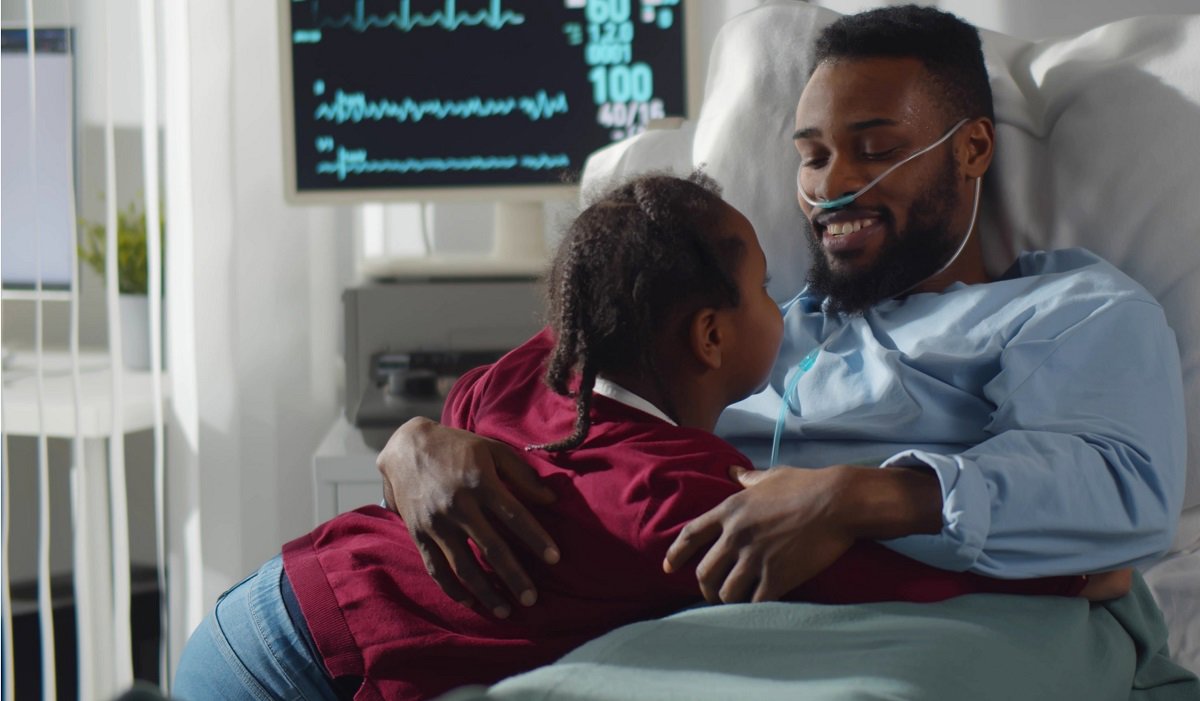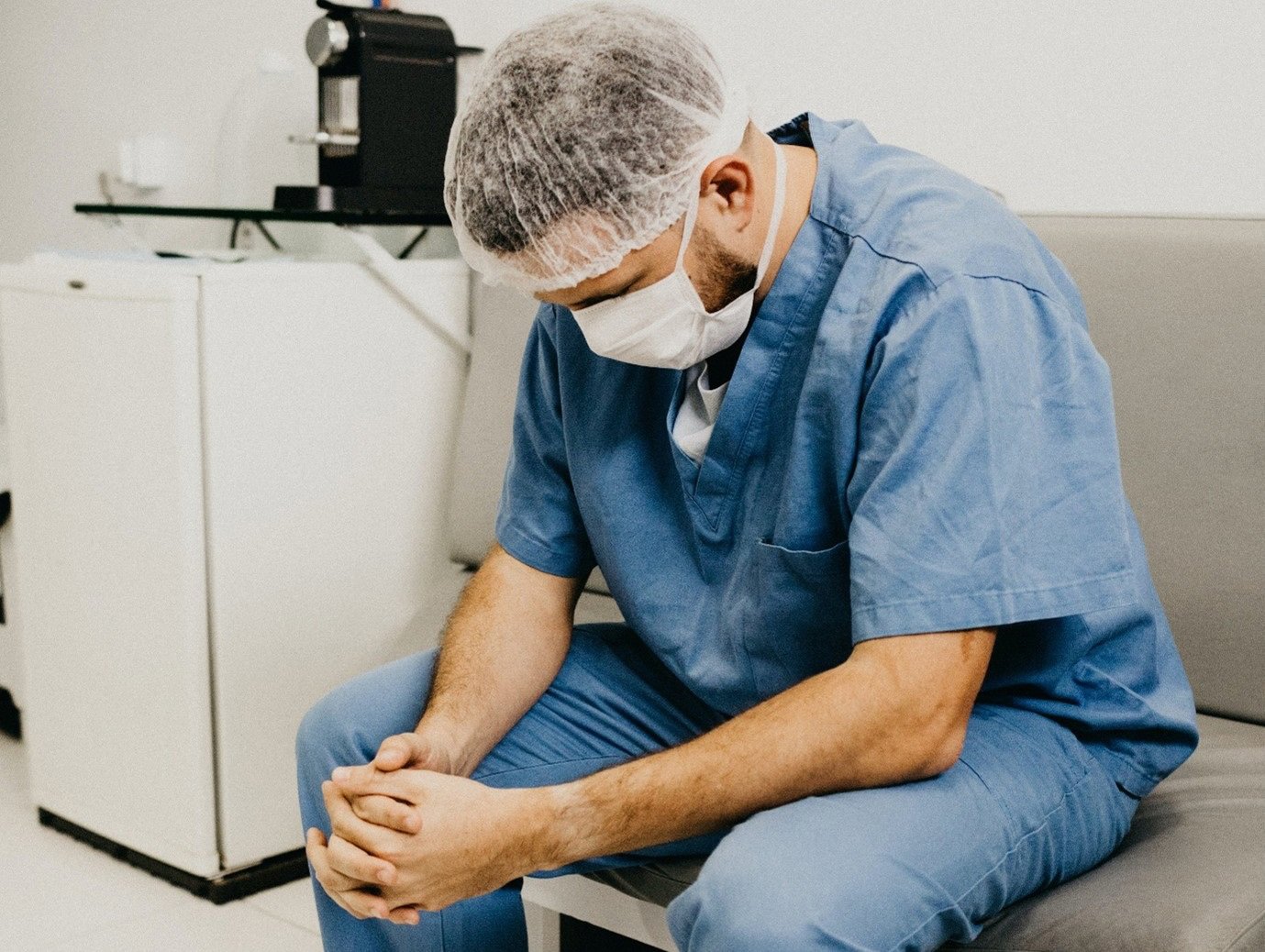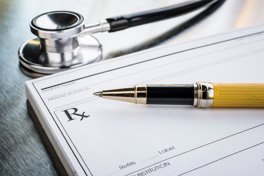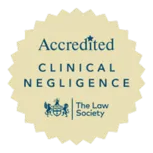What Are The Most Common Types Of Medical Negligence Claims We See?
When it comes to claiming compensation for Medical Negligence, there are lots of different situations you could do this in.
At Simpson Millar, some of the common types of medical negligence cases we see include:
- GP Negligence Claims: This can have severe consequences, like when serious illnesses like cancer aren’t diagnosed quickly enough.
- Fatal Medical Negligence Claims: As the title suggests, this is when a medical professional or institution’s mistake leads to someone passing away.
- Surgical Error Claims: This is when you’re undergoing surgery and the people operating on you make a mistake, leading to you sustaining an injury or illness.
Why Claim Compensation?
If you have long-term injuries or medical needs as a result of the medical negligence, a compensation settlement can help you get your quality of life back.
The right settlement can give you the means to access any care and support you need, such as private medical treatment, physiotherapy and counselling. Your compensation could also help you pay for external care and rehabilitation, mobility aids and travel expenses.
So while compensation provides an important acknowledgement that you’ve been the victim of medical negligence, it also helps you move on from what’s happened in a very positive and constructive way.

Do You Need A Solicitor?
At Simpson Millar, our team of Medical Negligence Solicitors always aim to work with the NHS instead of working against it, so that we can settle medical negligence claims fairly.
After all, if a medical mistake happens, it’s only right that a patient has the means to access the short and long-term care, support and treatment they may need, without stressing about how much it costs.
We want our clients to feel like justice has prevailed when the settlement is reached. However, this doesn’t mean that we want a confrontation or that we want to discredit the NHS – because it’s one of the UK’s most treasured institutions.
We believe we can achieve good results for our clients by first considering methods such as mediation, rather than more traditional routes such as Court proceedings.
Mediation has actually become a lot more popular recently, for a wide range of reasons. For example, it allows patients the chance to speak directly to the healthcare provider that treated them and receive direct explanations or apologies.
It’s a far less adversarial way of reaching a fair outcome, and an approach that gives patients a voice early on in the legal process, as well a chance to raise their concerns directly with the other side. That in turn means the healthcare provider can listen and respond to the points that have been raised, and potentially act on them to prevent other patients being affected by similar errors.
This is a crucial point to raise when it comes to why we want to work with the NHS in a collaborative and constructive way. Getting a fair settlement which meets our clients’ requirements is incredibly important, but it’s also important to make sure that the NHS is able to learn lessons from what’s happened. We also want to try and make sure this kind of thing doesn’t happen again.
We understand that the idea of taking legal action when you’re coping with the consequences of a medical mistake in hospital can be daunting and frightening. That’s why we will try and do everything we possibly can to make the process as stress-free and straightforward as possible.
Pursuing mediation and other non-confrontational ways of settling your claim is one way we can do this, and you can be sure that we’ll handle your case sensitively and empathetically from start to finish.
How Long Could it Take to Settle a Claim?
A typical case generally takes at least 12 months to settle, but every claim for medical negligence is different.
How long it takes to conclude a case depends on several factors, such as how much evidence is needed to prove various aspects of the claim, whether the claim is defended and whether or not it has to go to Court.
Why Are Medical Records Used During Your Claim?
Your medical records are important because they can help our team of Medical Negligence Solicitors figure out if the treatment you’ve been given is substandard. Also, they’ll help us work out how badly you were injured, and if what has happened has made your existing health condition worse.
With a full copy of your medical records from your GP/Hospitals and expert evidence following an examination we can work towards estimating the value of your claim and if any treatment is needed.
This is crucial as any settlement must compensate you not only for the injuries you’ve suffered because of the incident, but also help you access the treatment, rehabilitation, aid or equipment you need both now and in the future.
In medical negligence compensation claims, the treatment you’ve been given and your past medical history are inextricably linked, so it’s vital that we’re able to look at the bigger picture and make sure your full needs are met.
How Do We Prove Medical Negligence Has Taken Place?
When you make a claim for medical negligence in either England or Wales then, as the victim and injured person, you must present evidence to back up your case. This can include:
- Letter of Complaint
- Medical Records
- Witness Statements
- Expert Medical Evidence
- Financial Evidence
When you get in touch with us and decide to instruct one of our Medical Negligence Solicitors to act for you, we will take the responsibility of collating and assessing this evidence on your behalf to help you prove your case.
To claim compensation for medical negligence successfully, you need to prove that the care you were given fell below the expected standards, and that this has caused you an injury or a worsening illness or condition. There are two elements to this:
- Breach of Duty - Proving that the treatment or care provided fell below the standard you’d expect of a competent or responsible medical practitioner
- Causation - Proving that this breach of duty caused your injury or loss
A medical negligence claim can only succeed if both of these can be proven, so ultimately, it must be proven that there’s a better than 50% chance that the medical care provided was negligent and that this caused your injury.
If you believe you have experienced substandard medical care, get in touch with our specialist team of Medical Negligence Solicitors today. We’ll give you a free claims assessment, and we’ll answer any questions you have about how it all works.
Do You Need To Go To Court?
The majority of medical claims in England and Wales get settled without having to go to Court, meaning that it’s unlikely that you’d have to appear in Court for your case.
Mediation is an effective alternative to a trial in many cases and helps to make sure that very few cases go to Court.
Our expert Medical Negligence Solicitors always aim to work collaboratively with the NHS, rather than against it, to settle claims, so we’ll always push for options such as mediation so claims can be resolved amicably and as quickly as possible.
We want to achieve the best possible outcome on for our clients and make sure the NHS learns lessons for the future, rather than go through a lengthy and costly Court case. But, in the unlikely event that your case goes to Court, we will support you along the way.
What Are The Different Levels Of Payouts?
Firstly, your Medical Negligence Solicitor will assess whether the treatment you received was substandard and whether you’ve suffered as a result of that treatment. With this information, we can calculate how much compensation you’ll need to cover areas such as:
- Rehabilitation
- Loss of past and future earnings
- Cost of care and assistance
- Prescription charges and medical fees
- Cost of assistance with household chores
- Travel expenses
- Out of pocket expenses
- Special care aids and appliances
Receiving compensation can also provide a sense of closure to people who’ve been affected by medical negligence, helping them move on with the sense that justice has been done.
When a loved one died as a result of medical negligence, we can also help family members to claim bereavement damages or fatal accident compensation.
There are two components to medical negligence compensation:
General Damages
- For the injury and damage caused, pain, suffering and loss of amenity which was avoidable but for the negligence.
Special Damages
- Financial losses incurred as a result of the negligence such as for loss of earnings, out of pocket and other expenses.
In many medical negligence cases, the special damages are a substantial part of the overall award, particularly if care and loss of earnings are included. These take into account both past and future loss of earnings. In catastrophic injury cases, consideration is given to many different aspects of future needs, such as the Claimant’s future housing requirements and whether occupational therapy, rehabilitation and care support is necessary.
Depending on what type of injury you’ve suffered, you could be given different amounts of general damages. Claims for compensation could be anywhere from £1,000 to more than £1 million – it all depends on how severe your injury was, the impact on your life, the level of suffering and the length of any injury and its consequences.
Interim Payments
In some medical negligence cases, after the other side has admitted liability or partial liability, it may be possible for an interim payment of compensation to be awarded to the Claimant before the case has reached final settlement. If this is the case with your claim, your Medical Negligence Solicitor will be able to advise you.
Time Limits on Making a Claim
If you live in England or Wales, you need to make the claim within 3 years of the date the medical negligence took place, or within 3 years of the date you became aware that you received negligent treatment.
Although there is a 3 year time limit, there are different rules for children,and for people who don’t have mental capacity. Generally, the time limit does not start running for children until they reach the age of 18 or for people who do not have capacity until such time as they regain capacity. This can be complicated and it’s important to seek legal advice as quickly as possible.
Step By Step Guide To The Process
If we take on your case, we will:
- Carry out initial investigations
- Arrange an independent medical assessment
- Approach the healthcare provider with details of our claim
- Negotiate a settlement if possible
If the other party doesn’t admit liability, we might have to issue Court proceedings. However, even if this takes place, we will continue to negotiate, and we will still aim to settle the case before it has to go to Court.
We will work hard with the NHS to ensure your case is brought to an end without anyone having to go to Court. To do this, we might arrange for mediation or some other type of dispute resolution during the claim, as this can result in a fair outcome which is reached amicably.
- Initial investigations: We'll ask for your medical records and take a detailed witness statement from you.
- Medical assessment: We'll arrange for an independent medical expert to give us their opinion on your treatment and whether they consider it to be negligent
- Healthcare provider: A Letter of Claim will be sent to the healthcare provider who treated you. They'll have 4 months to respond
- Negotiation: If the healthcare provider accepts responsibility, we'll apply for an Interim Payment and negotiate a settlement that compensates you fairly
- Mediation: We'll actively consider mediation throughout our claim. We want to work with the NHS to settle your claim quickly and get you the best possible outcome
- Court proceedings: If they don't accept responsibility, we'll issue Court proceedings. We'll continue to try to negotiate settlement right up to the trial

Should You Complain To The NHS?
You should complain to the NHS first.
In medical negligence cases where your complaint or medical negligence claim isn’t particularly clear cut, you should first access the relevant NHS Complaints procedure. This could resolve any concerns you might have, and if it doesn’t it should end up with you getting a reasonable response. This could in turn help to assess whether legal action would then be appropriate. If you set up a grievance through the NHS Complaints procedure, you will then have the right to:
- Complain and have your complaint investigated
- Refer the matter to the Parliamentary and Health Service Ombudsman if you’re not happy with the outcome of your complaint
- Make a claim for Judicial Review
- Receive compensation
You should complain to the healthcare provider responsible for treating you within 12 months of the date of the incident or the date you became aware that there was a problem. Once you have received the outcome of your complaint, the next step would be to seek independent legal advice, with a view to making a medical negligence claim.
If a patient suffers harm by accident, the surgery or hospital where this happened must investigate why it happened. This process should be fair, and a genuine attempt should be made to find out exactly what happened. An apology should be made, where it is justified.
This doesn’t always happen and the patient has a right to ask the Parliamentary & Health Services Ombudsman (PHSO) to investigate the initial investigation. The PHSO has recently reviewed its own procedures and will be significantly improving them; see the Parliamentary and Health Service Ombudsman response to the clinical advice review.
Once the hospitals or surgery’s own investigation is complete, the patient can complain to the PHSO. It generally doesn’t have the power to investigate if no one registers a complaint.
Once a complaint is received, however, a case worker will be assigned and they will then ask for details from the patient and the care provider. It’s essential to keep in mind that the PHSO isn’t investigating how reasonable or high-quality the treatment was. Instead, it can only investigate whether the internal investigation was acceptable or not.
That said, it will often need to consider the underlying medical treatment in order to decide whether the initial investigation was sufficiently fair and objective. In these circumstances, the case worker will need to seek assistance from a medically-trained clinical advisor to try to achieve this.
What Should Patients Do?
Right now, patients need to go through all the internal complaints procedures they can before getting in contact with the PHSO. Once they do so, they should be willing and able to provide all of the necessary information promptly. Despite the fact that the PHSO provides better information, patients still need to feel able to ask questions.
If you’re dissatisfied with the way in which the PHSO investigation has been conducted, it does have its own complaints procedure. But, this is limited, as you’re only able to ask it to consider whether it met its’ own standards, rather than whether the treatment or internal investigation were reasonable. By the time this stage is reached, there’s a significant risk that time to consider other options will be running out.
In some cases, it might be a good idea to investigate whether you would be eligible for compensation through a clinical negligence claim so that you are able to live with the impact of negligent treatment. If this is the case, it’s essential to get specialist legal advice from a knowledgeable Medical Negligence Solicitor.

How Can Simpson Millar Help You?
At Simpson Millar, we are a national law firm with offices in both England and Wales. So, we can help anyone in England and Wales, regardless of where they live or how far away they are from our offices.
Also, you don’t need to actually visit one of our offices in order for us to handle your claim. That’s because we can speak with you by phone and communicate with you remotely using email and technology such as Skype, Zoom and Microsoft Teams.
We get that taking legal action could seem daunting and scary potentially, but at Simpson Millar, we always provide an approachable and supportive approach. In addition, when you get in touch with us, you can expect to get a service that’s tailored to you and your particular case and needs.
The NHS has 1.6 million interactions per day on average, and knowing this, we will ensure to personalise your experience with us, so we fully understand your situation. Give us a call on 0808 258 4411, and let our team help you.
FAQs
Can I Claim For Negligence in A&E?
If you’ve suffered in some way because the A&E services you were provided weren’t up to standard, you might be able to claim compensation for what happened and the financial losses you’ve had to deal with because of this. At Simpson Millar, our Medical Negligence Solicitors have several decades of experience in dealing with A&E Negligence Claims.
When it comes to the timelines of your case (apart from exceptional circumstances), you need to claim within 3 years of when the negligence happened.
Can I Claim Against My GP?
If you’re looking to claim compensation for medical negligence by a GP and you live in either England or Wales, you need to prove that the standard of care you received was below what you’d expect from a reasonably competent health professional, and that you were injured as a result.
You would also need to show that the medical negligence you experienced either caused an injury or made an existing injury worse.
Types of GP Negligence Claims:
- Misdiagnosing or failing to diagnose a condition
- Prescribing the wrong medication
- A delay or failure to act upon test results or refer for further investigation
- A delay or failure to treat symptoms
Can I Claim For Loss Of Earnings?
Simply put, yes. If you can’t work due to the clinical or medical negligence you’ve suffered, you can absolutely make a claim for loss of earnings.
You will need to prove that your injury or illness was caused by medical negligence, and you need to show that the time you took off work due to this was reasonable.
To do this, our Medical Negligence Solicitors will arrange for you to be assessed by an independent medical expert. The expert will then compile a medical report detailing your condition, the effect on your life and any future care and treatment needs you may have.
Can I Claim If My Child Is Impacted By Medical Negligence?
If a healthcare professional causes harm to your child through a medical injury or by administering inappropriate treatment, you could make a medical negligence claim on their behalf.
We understand that making a claim for compensation will never be able to take away the trauma of seeing your child suffering. However, it could make a massive difference when it comes to their recovery and their future care.
There’s no definitive list of the types of medical negligence that can affect children, but there are some that are more common. These include:
Will Claiming Against The NHS Impact My Care?
Absolutely not. You have the right to claim compensation for medical negligence without it affecting your right to get treatment. Your rights remain the same irrespective of whether you decide to complain to the hospital or take legal action.
The possibility that claiming compensation could affect your treatment is an understandable concern, and one that’s often raised by our clients when they’re thinking of making a hospital negligence claim.
But to act differently towards patients who are claiming medical negligence compensation would only bring the medical profession into disrepute. Therefore, it’s rare that clients feel like they’re being treated differently after making a claim.
Do You Need To Give Consent For Surgery?
Yes. As a human being, provided we’re of sound mind and capable of making decisions, we have the absolute right to determine what happens to our bodies.
When it comes to consenting to a medical treatment like surgery, it’s all about your right to decide and control what happens to your body.
We call it “informed consent”. So, it isn’t sufficient for a doctor or surgeon to rely on the fact that a patient has signed a consent form, as consent is an ongoing process.
The patient would have to show that a risk – which led to them getting an injury – wasn’t discussed with them during the consent process, and if it had been, the patient wouldn’t have gone ahead with the surgery.
This is a very complex area of Medical Negligence law, and one which our Solicitors are happy to walk you through.














